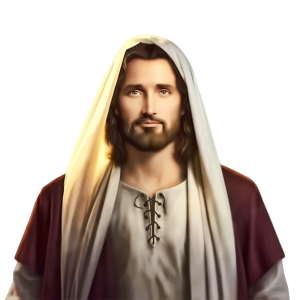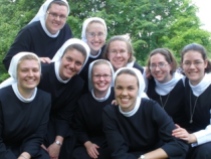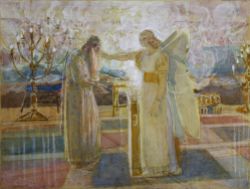WE DO NOT KNOW THE DAY OR THE HOUR WHEN HE WILL RETURN TO THE EARTH
(A biblical reflection on THE FIRST SUNDAY OF ADVENT [Year B], 3 Deeember 2017)
Gospel Reading: Mark 13:33-37
First Reading: Isaiah 63:16-17,19;64:1,3-8; Psalms: Psalm 80:2-3,15-16,18-19; Second Reading: 1 Corinthians 1:3-9
“Take heed, watch and pray; for you do not know when the time will come. It is like a man going on a journey, when he leaves home and puts his servants in charge, each with his work, and commands the doorkeeper to be on the watch. Watch therefore – for you do not know when the master of the house will come, in the evening, or at midnight, or at cockcrow, or in the morning – lest he come suddenly and find you asleep. And what I say to you I say to all: Watch.” (Mark 13:33-37 RSV)
As the Advent season begins, Jesus reminds us in today’s Gospel that we must always be ready because we do not know the day or the hour when He will return to the earth. In Greek, the original language of the Gospels, parousia is the word for the second coming of Jesus.
The early Christians believed that parousia would occur within their own lifetime. Jesus would return to conquer the world and the world as we know it would end. With Jesus in complete control, the reign of God would begin and there would be no more wars, hunger, or suffering. God would then transform the earth into a new garden of Eden, just as it was before the first sin.
This belief in Jesus’ imminent return caused a problem for the early Church. Some Christians who concluded there wasn’t much sense in working if the world was going to end some time soon, relied on others to support them while they spent their time praying and waiting for the parousia. This led the author of the second letter to the Thessalonians to lay down the rule that anyone who would not work should not eat (2 Thessalonians 3:10).
The belief in Jesus’ quick return also delayed the writing of the Gospel stories. Instead of recording what Jesus said and did, the early Christians verbally passed on stories about Jesus. They were not afraid that Jesus’ teachings would get distorted because they expected the parousia to occur before the apostles and other eyewitnesses were all dead. One of them would always be around to insure the accuracy of what was being said.
Only after it was clear that the parousia was not going to occur as soon as they first thought, did the early Christians finally begin writing the Gospels. Because of this, the first Gospel (Mark) was not written until about 65-70 A.D. That’s thirty-five to forty years after the death and resurrection of Jesus!d
The early Christians went to an extreme by believing the parousia would occur at any minute but most modern Christians act as if the world cannot end in our own lifetime. Today’s Gospel reading warns that this isn’t necessarily true.
Source: Jerome J. Sabatowich, Cycling Through the Gospels – Gospel Commentaries for Cycles A, B, and C, pages 120-121.)
Prayer: Heavenly Father, especially for this Advent send Your Holy Spirit to help us prepare our hearts by welcoming Jesus into our lives as we begin each day during this holy season. By knowing and experiencing Jesus and His love for us more closely, we can know the joy of awaiting His second coming (parousia). Amen.
Jakarta, 1 December 2017
A Christian Pilgrim



![250px-Gregorythegreat POPE ST. GREGORY THE GREAT [540-604]](https://achristianpilgrim.files.wordpress.com/2015/05/250px-gregorythegreat.jpg?w=132&resize=132%2C186#038;h=186)

![PAUS KLEMENS I - 4 POPE ST. CLEMENT I {PONTIFICATE: ca. 91- ca. 101]](https://achristianpilgrim.files.wordpress.com/2015/05/paus-klemens-i-4.jpg?w=214&resize=214%2C284#038;h=284)
![PAUS KLEMENS V POPE CLEMENT V [PONTIFICATE: 1305-1314]](https://achristianpilgrim.files.wordpress.com/2015/05/paus-klemens-v.jpg?w=241&resize=241%2C284#038;h=284)
![PAUS BONIFACIUS VIII POPE BONIFACE VIII [PONTIFICATE: 1294-1301]](https://achristianpilgrim.files.wordpress.com/2015/05/paus-bonifacius-viii.jpg?w=178&resize=178%2C284#038;h=284)
![PAUS GREGORIUS VII POPE ST. GREGORY VII [PONTIFICATE: 1073-1085]](https://achristianpilgrim.files.wordpress.com/2015/05/paus-gregorius-vii.jpg?w=167&resize=167%2C227#038;h=227)
![POPE PIUS X - 111 POPE ST. PIUS X OFS [PONTIFICATE: 1903-1914]](https://achristianpilgrim.files.wordpress.com/2015/05/pope-pius-x-111.jpg?w=142&resize=142%2C227#038;h=227)
![POPE BENEDICT XV POPE BENEDICT XV [PONTIFICATE: 1914-1922]](https://achristianpilgrim.files.wordpress.com/2015/05/pope-benedict-xv.jpg?w=153&resize=153%2C227#038;h=227)
![POPE PIUS XI POPE PIUS XI OFS [PONTIFICATE: 1922-1939]](https://achristianpilgrim.files.wordpress.com/2015/05/pope-pius-xi.jpg?w=167&resize=167%2C227#038;h=227)
![POPE PIUS XII - 112 POPE PIUS XII [PONTIFICATE: 1939-1958]](https://achristianpilgrim.files.wordpress.com/2015/05/pope-pius-xii-112.jpg?w=304&resize=304%2C413#038;h=413)
![PAUS YOHANES XXIII - 2 POPE ST. JOHN XXIII OFS [PONTIFICATE: 1958-1963]](https://achristianpilgrim.files.wordpress.com/2015/05/paus-yohanes-xxiii-2.jpg?w=333&resize=333%2C413#038;h=413)
![POPE PAUL VI - 100 POPE PAUL VI [PONTIFICATE: 1963-1978]](https://achristianpilgrim.files.wordpress.com/2015/05/pope-paul-vi-100.jpg?w=334&resize=334%2C414#038;h=414)


![KARDINAL RATZINGER - 1 POPE BENEDICT XVI [PONTIFICATE 2005-2013 - RESIGNATION]](https://achristianpilgrim.files.wordpress.com/2015/05/kardinal-ratzinger-1.jpg?w=391&resize=391%2C281#038;h=281)
![Paus Fransiskus upload POPE FRANCIS [PONTIFICATE 2013 - ]](https://achristianpilgrim.files.wordpress.com/2015/05/paus-fransiskus-upload.png?w=175&resize=175%2C202#038;h=202)
![FA NGPBROL DENGAN BURUNG2 ST. FRANCIS OF ASSISI [1181-1226]](https://achristianpilgrim.files.wordpress.com/2015/05/fa-ngpbrol-dengan-burung2.jpg?w=157&resize=157%2C202#038;h=202)
![ST. FRANCIS XAVIER - 008 ST. FRANCIS XAVIER [1506-1552]](https://achristianpilgrim.files.wordpress.com/2015/05/st-francis-xavier-008.jpg?w=161&resize=161%2C202#038;h=202)
![Ignatius of Loyola - 100 ST. IGNATIUS OF LOYOLA [1491-1556]](https://achristianpilgrim.files.wordpress.com/2015/05/ignatius-of-loyola-100.jpg?w=136&resize=136%2C202#038;h=202)
![DAMIEN OF MOLOKAI - 02 ST. DAMIEN OF MOLOKAI [1840-1889]](https://achristianpilgrim.files.wordpress.com/2015/05/damien-of-molokai-02.jpg?w=193&resize=193%2C264#038;h=264)
![ANTONIUS DARI PADUA - 1 ST. ANTHONY OF PADUA - FRANCISCAN [1195-1231]](https://achristianpilgrim.files.wordpress.com/2015/05/antonius-dari-padua-1.jpg?w=258&resize=258%2C264#038;h=264)
![SANTA KLARA DARI ASSISI - 07 ST. CLARE OF ASSISI [1195-1253]](https://achristianpilgrim.files.wordpress.com/2015/05/santa-klara-dari-assisi-07.jpg?w=182&resize=182%2C264#038;h=264)
![SANTA ELISABET DARI HUNGARIA - 09 ST. ELIZABETH OF HUNGARY OFS [1207-1231] - QUEEN](https://achristianpilgrim.files.wordpress.com/2015/05/santa-elisabet-dari-hungaria-09.jpg?w=152&resize=152%2C206#038;h=206)
![ST. LOUIS IX - 01 ST. LOUIS IX OFS - KING OF FRANCE [1215-1270]](https://achristianpilgrim.files.wordpress.com/2015/05/st-louis-ix-01.jpg?w=159&resize=159%2C206#038;h=206)

![FR. MAXIMILIAN KOLBE - 000 ST. MAXIMILIAN KOLBE OFMCONV. [1894-1941; MARTYR OF CHARITY]](https://achristianpilgrim.files.wordpress.com/2015/05/fr-maximilian-kolbe-000.jpg?w=160&resize=160%2C206#038;h=206)
![Childrens-Home-of-the-Immaculate-Heart-baby BLESSED MOTHER TERESA [1910-1997] - FRIEND OF THE POOR](https://achristianpilgrim.files.wordpress.com/2015/05/childrens-home-of-the-immaculate-heart-baby.jpg?w=405&resize=405%2C326#038;h=326)
![therese ST. TERESA OF LISIEUX OCD [1873-1897]](https://achristianpilgrim.files.wordpress.com/2015/05/therese.jpg?w=232&resize=232%2C326#038;h=326)
![John of the Cross 23 ST. JOHN OF THE CROSS OCD [1542-1591]](https://achristianpilgrim.files.wordpress.com/2015/05/john-of-the-cross-23.jpg?w=200&resize=200%2C200#038;h=200&crop=1)
![St.-Teresa-of-Avila ST. TERESA OF AVILA OCD [1515-1582]](https://achristianpilgrim.files.wordpress.com/2015/05/st-teresa-of-avila.jpg?w=150&resize=150%2C200#038;h=200)
![SANTA FRANSISKUS DARI SALES ST. FRANCIS DE SALES [1567-1622]](https://achristianpilgrim.files.wordpress.com/2015/05/santa-fransiskus-dari-sales.jpg?w=150&resize=150%2C200#038;h=200)
![ST. CATHERINE LABOURE - 06 ST. CATHERINE LABOURE [1806-1876]](https://achristianpilgrim.files.wordpress.com/2015/05/st-catherine-laboure-06.jpg?w=129&resize=129%2C200#038;h=200)
![ST. BERNARDUS DARI CLAIRVAUX - 11 ST. BERNARD OF CLAIRVAUX [1090-1153] - FOUNDER OF THE OCSO](https://achristianpilgrim.files.wordpress.com/2015/05/st-bernardus-dari-clairvaux-11.jpg?w=355&resize=355%2C397#038;h=397)


















![JACOBA OF SETTESOLLI JACOBA OF SETTESOLLI [+ 1239]](https://achristianpilgrim.files.wordpress.com/2015/05/jacoba-of-settesolli1.jpg?w=227&resize=227%2C276#038;h=276)
![RAYMUNDUS LULLUS - 1 BLESSED RAYMOND LULL OFS [1236-1314]](https://achristianpilgrim.files.wordpress.com/2015/05/raymundus-lullus-1.jpg?w=339&resize=339%2C396#038;h=396)
![ST. CLARE OF ASSISI - 17 ST. CLARE OF ASSISI [1195-1253]](https://achristianpilgrim.files.wordpress.com/2015/05/st-clare-of-assisi-17.jpg?w=298&resize=298%2C396#038;h=396)




![ANNUNCIATION - MARIA DIBERI KABAR OLEH MALAIKAT TUHAN -1001 ANNOUNCEMENT OF THE BIRTH OF JESUS [2]](https://achristianpilgrim.files.wordpress.com/2018/10/annunciation-maria-diberi-kabar-oleh-malaikat-tuhan-1001.jpg?w=243&resize=243%2C294#038;h=294)

![VISITATION - 9 MARY VISITS ELIZABETH [2]](https://achristianpilgrim.files.wordpress.com/2018/10/visitation-9.jpg?w=394&resize=394%2C291#038;h=291)
